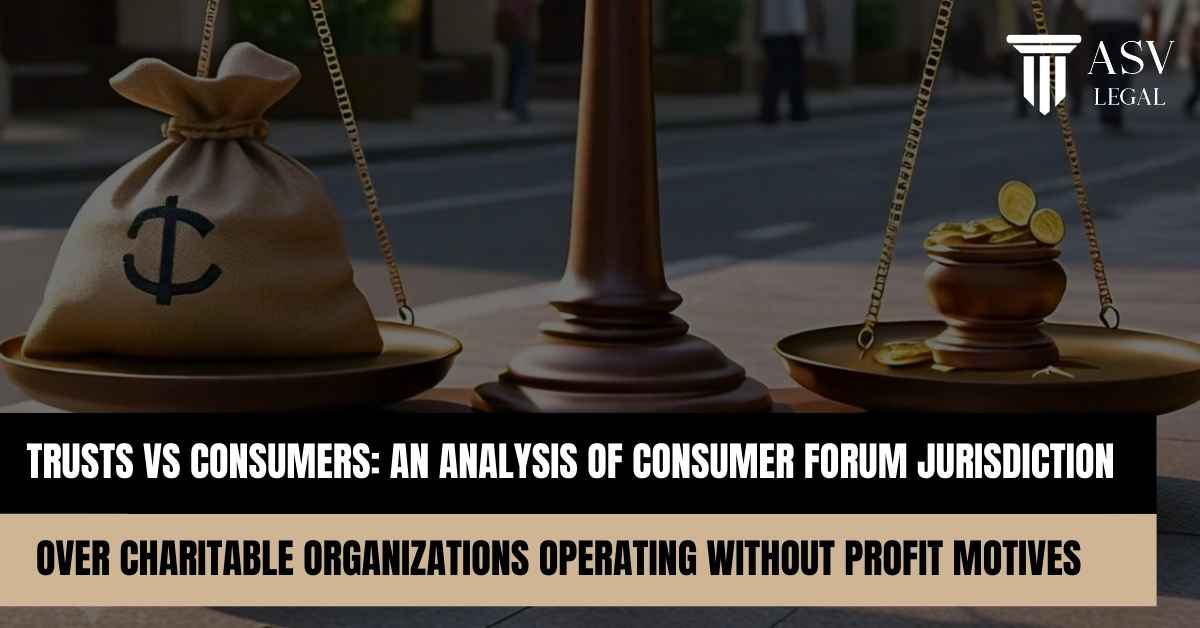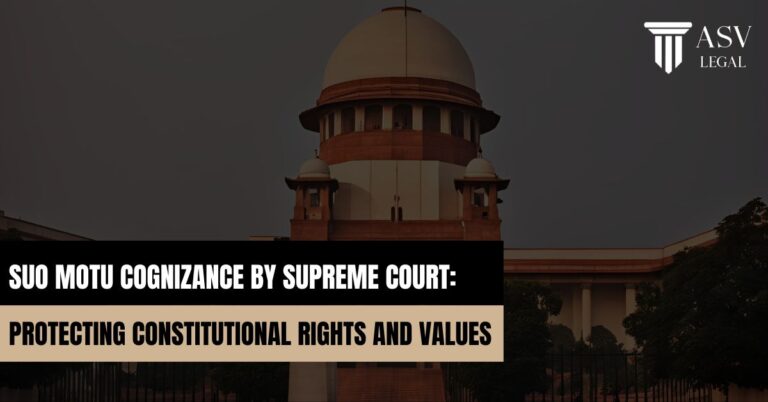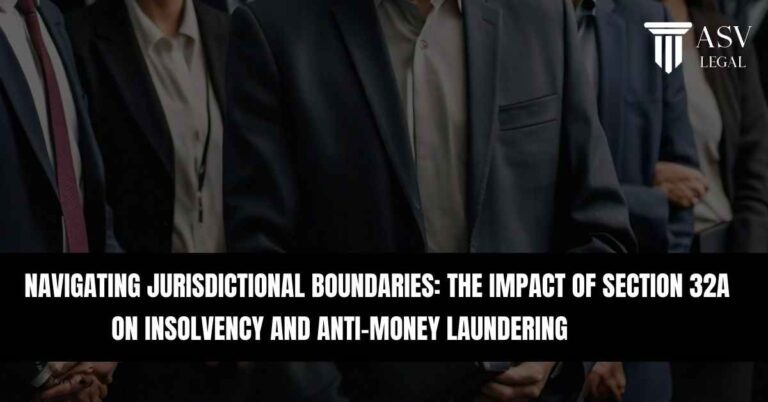Written By: Muskaan Goel
Introduction
Charitable organizations play a vital role in society by offering services to the public without the aiming to make a profit. However, their activities can sometimes intersect with legal and consumer protection frameworks, raising questions about their liability and jurisdiction under The Consumer Protection Act, 2019 (“Act”). An important issue that has emerged over time is whether charitable trusts, which do not operate with profit motives, can be held responsible under consumer protection laws. This article explores the jurisdiction of consumer forums over charitable organizations and examines the legal reasoning for excluding such organizations from the scope of consumer protection laws.
The evolving debate about whether a charitable trust can be considered a consumer under the Act has become a significant legal issue. Recently, the Supreme Court has referred this issue to a larger bench, bringing into question the previous legal precedent established in the case of Pratibha Pratisthan v. Manager, Canara Bank[1]. Whereby it was held that a trust is not recognized as a “person” under the Consumer Protection Act, 1986, and therefore cannot be classified as a consumer or lodge a complaint in consumer forums. However, given the evolving landscape of legal interpretations and societal requirements, it is important to delve deeper into the wider implications of this issue.
Supreme Court’s Referral to Larger Bench Signals towards the Potential Change
In the recent case of Administrator Smt. Tara Bai Desai Charitable Ophthalmic Trust Hospital, Jodhpur v. Managing Director Supreme Elevators India Pvt. Ltd.[2], the Supreme Court bench comprising of Justice Uday Umesh Lalit and Justice Aniruddha Bose highlighted this legal ambiguity. The central question was whether a charitable trust could maintain an action under the provisions of the Act and seek compensation for any deficiencies in service. The Court’s decision to refer the issue to a larger bench signals the possibility of a significant shift in how charitable trusts are treated under the consumer protection laws.
The key issue lies in the interpretation of the terms “consumer,” “person,” and “complainant” as defined under the Act. Section 2(7) of the Act, defines a “consumer” as a person who buys goods or hires services for consideration, excluding those who purchase for commercial purposes. Section 2(1)(31) of the Act, defines a “person” to include firms, companies, and even associations of persons, whether registered or not. At first glance, these definitions appear broad enough to encompass a range of entities, including trusts. However, the precedent set by Pratibha Pratisthan (supra) created a narrower interpretation, excluding trusts from the scope of ‘persons’ and thereby denying them the ability to file complaints as consumers, which also broaden scopes of charitable trust not being considered liable under the Act if they are not classified as ‘persons’.
However, the bench in the Administrator Smt. Tara Bai Desai Charitable Ophthalmic Trust (supra) case took note of the fact that the definition of “person” under the Act is inclusive, incorporating associations of individuals not registered under formal statutes. This observation casts doubt on the earlier ruling, suggesting that a trust, which is an organized association of persons formed for charitable purposes, could logically fall within the ambit of the Act. Furthermore, the Court highlighted that even unregistered firms, which face legal disabilities in other contexts, are allowed to file consumer complaints. By this reasoning, it becomes increasingly difficult to justify excluding charitable trusts from consumer protection mechanisms.
Striking a Balance Between Accountability and Benevolent Intentions of the Charitable Institutions
This shift in perspective reflects the broader legislative intent behind the Act. It aimed to provide effective remedies to individuals and entities affected by the substandard quality of goods or services. Currently, the law does not explicitly exclude trusts from the definition of “person” or “consumer“, and charitable organizations often conduct service-oriented transactions, such as healthcare or education. Even if the primary purpose of the organization is charitable, when such services are provided for consideration, it is reasonable for beneficiaries to have access to consumer protection mechanisms.
The recent ruling by the Supreme Court presents an opportunity to reassess whether it is justified to exclude trusts from the scope of the Act. When these services are paid for, they establish a transactional relationship between the trust and the individual, somewhat similar to a commercial transaction. Denying these individuals consumer protection rights based on the fact that the service provider is a charitable organization could result in unfair outcomes, particularly in instances of clear negligence or inadequacy.
Charitable trusts, despite their benevolent intentions, are not immune to errors or misconduct, and exempting them from consumer protection laws could allow them to evade accountability, limiting legal recourse for those who rely on their services. However, concerns arise about burdening these organizations with litigation, as many operate on limited budgets, and consumer complaints could divert resources from their public service mission. While remedies under trust law or civil law exist, they are often more complex and time-consuming than consumer forums. Therefore, balancing consumer protection with the operational needs of charitable organizations is a challenge the larger bench must carefully navigate while deciding whether the charitable trusts are excluded from the definition of “person” under the Act or not.
[1] (2017) 3 SCC 712
[2] SLP (C) No.18636 OF 2019



